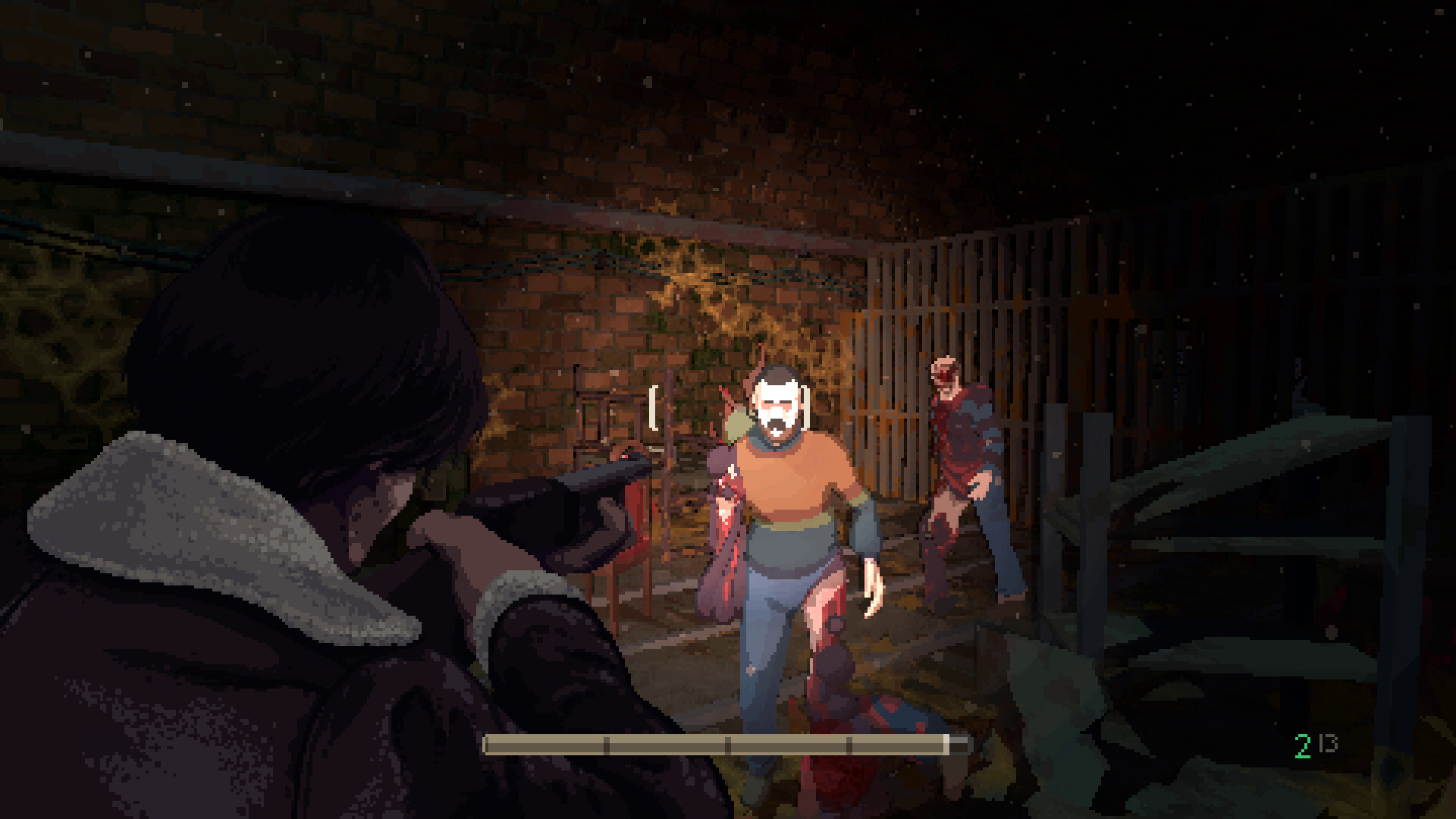Ultra-Indie Spotlight Sunday: Afterdream
This game begins with a talk between a lady and some kind of therapist. She is relaying the previous night’s dream, which you soon find yourself in. But this is no ordinary dream; you are trapped in a lucid nightmare, in a decaying apartment complex that is grimy and unsettling. Not only that, the dream appears to be home to some kind of ghosts. The demo raises more questions than answers but will leave you wanting to uncover the mystery of the Afterdream.

Conceptual Meta-Wank:
It is with great pleasure to announce that I have reached a milestone in my life. For the first time, just last week, I got to experience sleep paralysis. Laying in bed between napping and awakening, I heard a terrifying voice going “osososososos” behind me, and unable to move or scream, I could only wait and panic (I was, unfortunately, laying on my stomach, so I couldn’t see the sleep paralysis demon. Maybe next time). Anyways, it was a wholly unsettling experience and I think it helped me appreciate Afterdream a lot more.
As someone who additionally can’t remember most dreams nor have any with coherence, Afterdream captures the strange REM vibe with incredible ease. Like sleep, you find yourself standing before utterly bizarre surroundings without the ability to question whether this is real; it simply is. The knobs on the stove are a combination lock. You’re walking through the Silent Hill-looking halls of a decaying apartment when you come across a well-dressed maintenance man making small talk about the building. Very little makes sense but your character is not in the headspace to question it. That alone makes this more dreamlike than any other dreaming game I’ve played.

Non-Wanky Game Recap:
Afterdream is mostly a point-and-click adventure game. You strut to and fro around the grimy apartment trying to figure out the various puzzles around. Besides that, there is a sequence where you use a polaroid camera to navigate dark areas and reveal secrets. There’s not a whole lot to explore, nor many puzzles or secrets to uncover right now. Just enough to leave you wanting more.

What Works:
There are plenty of great aspects of the game. The music, the sound, the visuals. But more than that, what works about Afterdream is that it captures the aesthetic of a dream better than even LSD: Dream Emulator. However, the implication is laid on heavily that this is no ordinary dream; to what extent, we do not know right now. The mystery of this non-dream in and of itself is an intriguing aspect of the game, and I wish dearly the demo was longer.

What Doesn’t:
Of course, my main complaint is that Afterdream is not a full game yet. The obvious fix for that is for me to wait like six months to a year. Of course, at this stage, I’d rather not make too hasty of judgments. There appears to be a lot of potential with this idea and I am looking forward to seeing what the devs have for us down the road.

How To Fix It:
Not exactly a fix, but I think that leaning into the bizarre would make for some interesting narrative dream structures in Afterdream. Like a dream, I think the story should have completely arbitrary and absurd tangents. You’re walking through the creepy halls and come across a book, and the man behind you says “wait, we have to tell the captain,” and you open a door and find yourself on a cruise ship. Much like The Evil Within, the logic of a dream is wildly different than the real world and should be completely disregarded in storytelling like this.

Wanky Musings:
People used to believe that dreams held power. That they were messages from the supernatural or even the divine. Truthfully, I don’t know what is more strange; that our subconsciousness is getting visions from beyond, or the chemistry in our brain is creating bizarre esoteric meanings on its own. Afterdream has a lot of potential, in no small part because it takes place in one of the least understood yet most common place in the human experience. The demo may not be that long, but it certainly warrants your attention.




